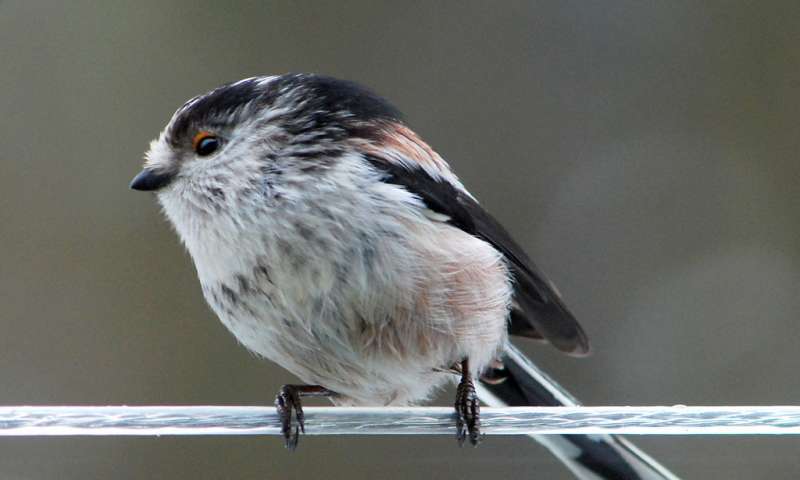#Long-tailed tits avoid incest by recognising the calls of relatives
“#Long-tailed tits avoid incest by recognising the calls of relatives”

Long-tailed tits actively avoid harmful inbreeding by discriminating between the calls of close family members and non-family members, according to new research from the University of Sheffield.
Inbred animals typically suffer from reduced survival and reproductive success, so incest is usually avoided. But, in species where young stay close to where they were born, relatives are often encountered as potential mates, increasing the risk of harmful inbreeding.
Long-tailed tits often breed close to home, allowing kin to help raise each other’s chicks, but also incurring a risk of incest that reduces the reproductive success of offspring. The research, led by Dr. Amy Leedale from the University of Sheffield’s Department of Animal and Plant Science, found that despite this risk, close relatives are actively avoided when pairs form each spring.
Long-tailed tits use distinctive calls to recognize close relatives so that they can help raise their offspring. The authors suggest that these calls also explain how the birds avoid inbreeding.
Dr. Amy Leedale, who led the research as a Ph.D. student at the University of Sheffield, said: “We recorded the calls of males and females in many pairs of long-tailed tits and found that the calls of breeding pairs were less similar than the calls of close relatives that they could have bred with. Call similarity within breeding pairs was, instead, similar to that observed among distant relatives or unrelated birds.”
Long-tailed tit calls are learned in the nest, when parents, offspring and siblings are closely associated. Call similarity can therefore act as a reliable indicator of close relatedness in adulthood. This study reveals a potential mechanism by which long-tailed tits can avoid harmful inbreeding as well as gaining benefits from cooperating with kin.
Professor Ben Hatchwell, who has led the long-tailed tit project at the University of Sheffield for more than 25 years, said: “This study demonstrates the value of long-term studies of wild animals, allowing us to build pedigrees of known individuals over many generations, and to measure the consequences of behavioral decisions for their reproductive success.”
The University of Sheffield’s Department of Animal and Plant Sciences is home to one of the biggest communities of whole-organism biologists in the UK. Research covers animals, plants, humans, microbes, evolution and ecosystems, in habitats ranging from the polar regions to the tropics. This work aims to shed new light on the fundamental processes that drive biological systems and help solve pressing environmental problems.
More information:
Amy E. Leedale et al. Helping decisions and kin recognition in long-tailed tits: is call similarity used to direct help towards kin?, Philosophical Transactions of the Royal Society B: Biological Sciences (2020). DOI: 10.1098/rstb.2019.0565
Long-tailed tits avoid incest by recognising the calls of relatives (2020, June 23)
retrieved 23 June 2020
from https://phys.org/news/2020-06-long-tailed-tits-incest-recognising-relatives.html
This document is subject to copyright. Apart from any fair dealing for the purpose of private study or research, no
part may be reproduced without the written permission. The content is provided for information purposes only.
If you want to read more Like this articles, you can visit our Science category.
if you want to watch Movies or Tv Shows go to Dizi.BuradaBiliyorum.Com for forums sites go to Forum.BuradaBiliyorum.Com

